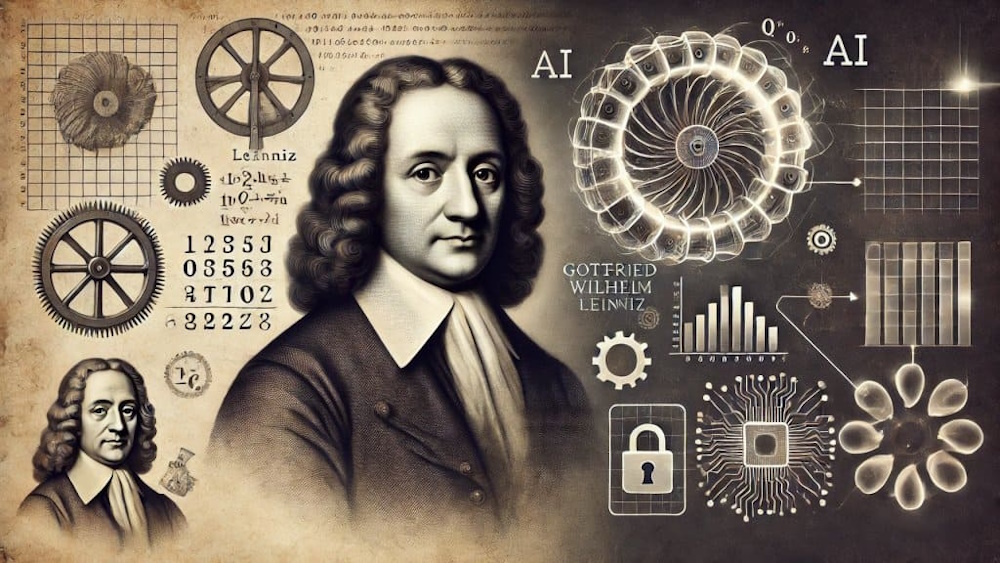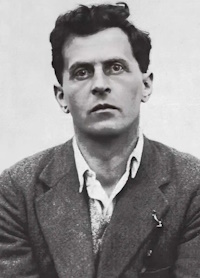 Philosophers
Philosophers
Until the Twentieth Century, artificial intelligence was the domain of philosophers. In some respects, like ethics, it still is.
Several philosophers laid the foundations for AI with their work on symbolic logic and their theories of the relationship of man to machine. Modern AI was influenced by their thoughts.
Related: AI Research - Brief History of AI - Ethics
The history of AI is deeply intertwined with philosophical inquiry, as many foundational concepts in AI were influenced by the theories of philosophers throughout history. Philosophers have played a crucial role in shaping the theoretical underpinnings of artificial intelligence. Their explorations into logic, reasoning, consciousness, and ethics continue to influence contemporary discussions about the capabilities and implications of AI technologies. As AI advances, these philosophical questions remain relevant, guiding both research and ethical considerations in the field.

 Historical Figures
Historical Figures
Aristotle (384-322 B.C.)
Aristotle formulated the first system of formal logic, including syllogisms, which laid the groundwork for deductive reasoning. His logical framework influenced the development of computational models used in AI for reasoning and inference. His work provided a basis for algorithms that process information and draw conclusions, essential for AI systems.
Al-Khuwarizmi (780-850)
Abu-Ja'far Mohammed ibn-Musa al-Khuwarizmi was a Persian mathematician whose work (and name) has given Computer Science the term algorithm. Published in 830 A.D., al-Khuwarizmi wrote a highly influential book on mathematical methods which later translated in the twelfth century into Latin as Algoritmi de numero Indium.
Leonardo da Vinci (1452-1519)
Leonardo was one of the first engineers to design a mechanical
calculator. No functioning prototype was built based on this design during
da Vinci's life, but there have been recent, successful attempts at
building a
calculator based on his designs.
 |
Rene Descartes (1596-1650) |
Descartes laid the foundation for the possibility of machines with minds and consciousness in his Meditations on First Philosophy. |
|
| Descartes is famous in the history of philosophy for his cogito, ergo sum (Latin for "I think, therefore I am") dictum in the Discourse on Method as a first step in demonstrating the attainability of certain knowledge. The statement is indubitable, Descartes said, because even if an all-powerful demon were to try to deceive him into thinking that he exists when he does not, he would have to exist in order for the demon to deceive him. Therefore, whenever he thinks, he exists. |
References
- ahistoryofai.com/descartes-2/
- academicjournals.org/journal/PPR/article-full-text-pdf
- epublications.marquette.edu/dissertations
- reddit.com/r/singularity/comments/16ca8y2/descartes_talking_about_ai_in_1637/
Gottfried Wilhelm Leibniz (1646-1716)
Leibniz's work on formal logic influenced the development of symbolic AI and advanced reasoning systems.
References
- aivips.org/gottfried-wilhelm-leibniz/
- blog.iaac.net/leibniz-reimagined/
- schneppat.com/gottfried-wilhelm-leibniz.html
- slate.com/technology/2016/11/the-18th-century-philosopher-who-helped-create-the-information-age
George Boole (1815-1864)
Boole developed Boolean algebra, which provided a mathematical framework for logic and reasoning. His work laid the foundation for digital circuit design and automated reasoning systems, which are central to many AI algorithms.
 |
Ada Lovelace (1815-1852) |
Trivia Question: who was the first computer programmer? Answer, Ada Lovelace |
|
| Daughter of Lord Byron, Ada is remembered for writing the first computer program, though the device for which she programmed did not exist in her time, due to the overly ambitious nature of its engineering requirements. Her most famous quote concerns the nature of computational creativity, claiming that "the Analytical Engine has no pretensions to originating anything, rather it is the programmer that is the source of any mechanical insight." Ada the programming language was named after her. |
Gottlob Frege (1848-1925)
Frege was a German logician, mathematician, and philosopher who laid the foundations of modern logic. His seminal work Begriffsschrift introduced a notational variant of what we now term First-Order Logic, and introduced the semantic distinction between sense and reference in the construction of meaning.
 Twentieth Century
Twentieth Century
Bertrand Russell (1872-1970)
Russell was an English philosopher and mathematician who is best remembered by AI as the co-author of Principia Mathematica. The Principia was an attempt to place mathematics within a logical framework that would allow mathematical truths to be sought out by a principled proof procedure. Russell also taught Ludwig Wittgenstein for two years at Cambridge.
 |
Ludwig Wittgenstein (1889-1951) |
Wittgenstein's ideas on language use relate to the statistical patterns exploited by large language models. |
|
| Many mistakenly see AI, as Wittgenstein saw language in his first book, Tractatus-Logico Philosophicus, as a direct correspondence between propositions and the real world of truth. The early pioneers of AI, with their focus symbolic AI and logic, had limited success as they too had this strictly representational view of language, which is flawed. Wittgenstein famously rejected his earlier idea in his later philosophy for a more complex view of language as a tool for communication not direct representation, as laid out in his Philosophical Investigations. |
References
- donaldclarkplanb.blogspot.com/2023/06/language-ai-and-what-we-can-learn-from.html
- anthempress.com/anthem-studies-in-wittgenstein/wittgenstein-and-artificial-intelligence-volume-i-hb book
- editverse.com/ludwig-wittgenstein-language-philosophy-logic/
- reddit.com/r/askphilosophy/comments/v46haa/does_late_wittgenstein_pose_problems_for_the/
- jurgengravestein.substack.com/p/what-ai-engineers-can-learn-from
- linkedin.com/pulse/wittgensteins-duality-language-reflection-generative-ai
- ministryoftesting.com/articles/
Kurt Godel (1906-1978)
In the early 1930s, Kurt Godel articulated the mathematical foundation and limits of computing, computational theorem proving, and logic in general, becoming the father of modern theoretical computer science and AI theory.
Alan Turing (1912-1954)
Alan Turing's ideas about machine intelligence and computation were pivotal in establishing AI as a legitimate field of study. Turing's 1950 paper "Computing Machinery and Intelligence" introduced the Turing Test, proposing that if a machine could engage in conversation indistinguishably from a human, it could be considered intelligent.
|
|
Check out The Imitation Game, a 2014 American period biographical film based on the 1983 biography Alan Turing: The Enigma by Andrew Hodges. The book and subsequent movie illustrate Turing's leading role in breaking the German Enigma ciphers during World War II. Also, Turing was named the greatest icon of the 20th Century by the BBC for his contributions to AI, the war effort, and social attitudes. |
 Links
Links
Ethics
iep.utm.edu/ethics-of-artificial-intelligence/
rit.edu/news/philosophy-ethics-and-pursuit-responsible-artificial-intelligence
weforum.org/stories/2023/06/ethics-ai-philosophy-better-tech/
Encyclopedias
iep.utm.edu/artificial-intelligence/
en.wikipedia.org/wiki/Philosophy_of_artificial_intelligence
plato.stanford.edu/entries/artificial-intelligence/
General Philosophy History
thecollector.com/philosophy-artificial-intelligence-development/
theconversation.com/philosophy-is-crucial-in-the-age-of-ai
reddit.com/r/askphilosophy/comments/18stef7/who_are_todays_leading_philosophers_thinking/
thecollector.com/philosophy-of-artificial-intelligence-descartes-turing/
vktr.com/ai-ethics-law-risk/what-are-philosophers-saying-about-ai/
en.wikipedia.org/wiki/Artificial_intelligence_in_myths_and_legends
en.wikipedia.org/wiki/Philosophy_of_artificial_intelligence
dailynous.com/ai-as-history-of-philosophy-tool/
semanticscholar.org/paper/A-Review-of-Artificial-Intelligence-(AI)-in-from-to-Zhai-Chu/